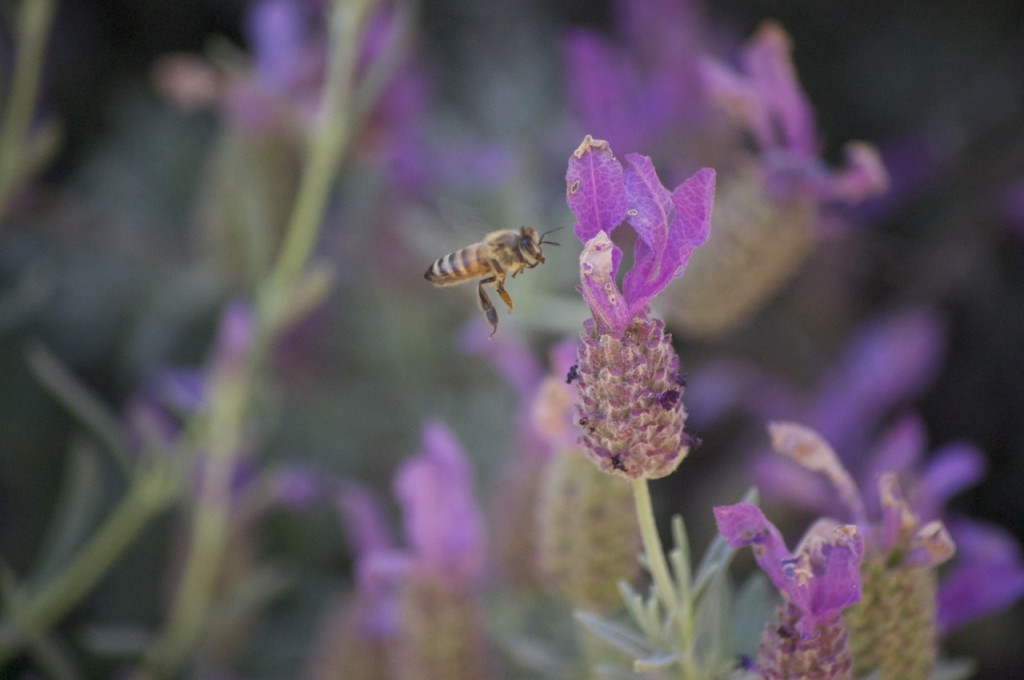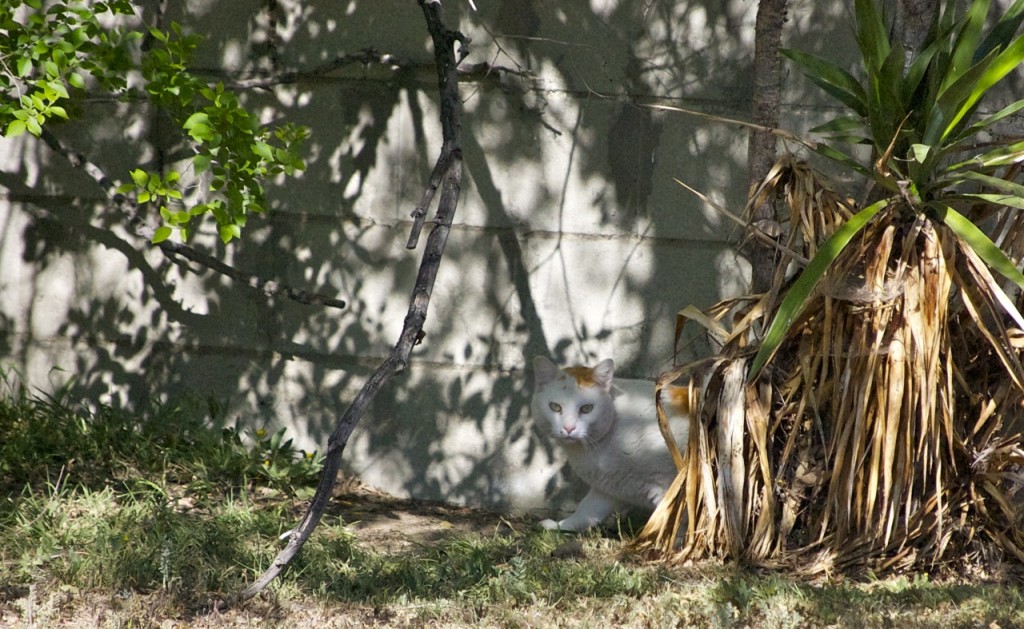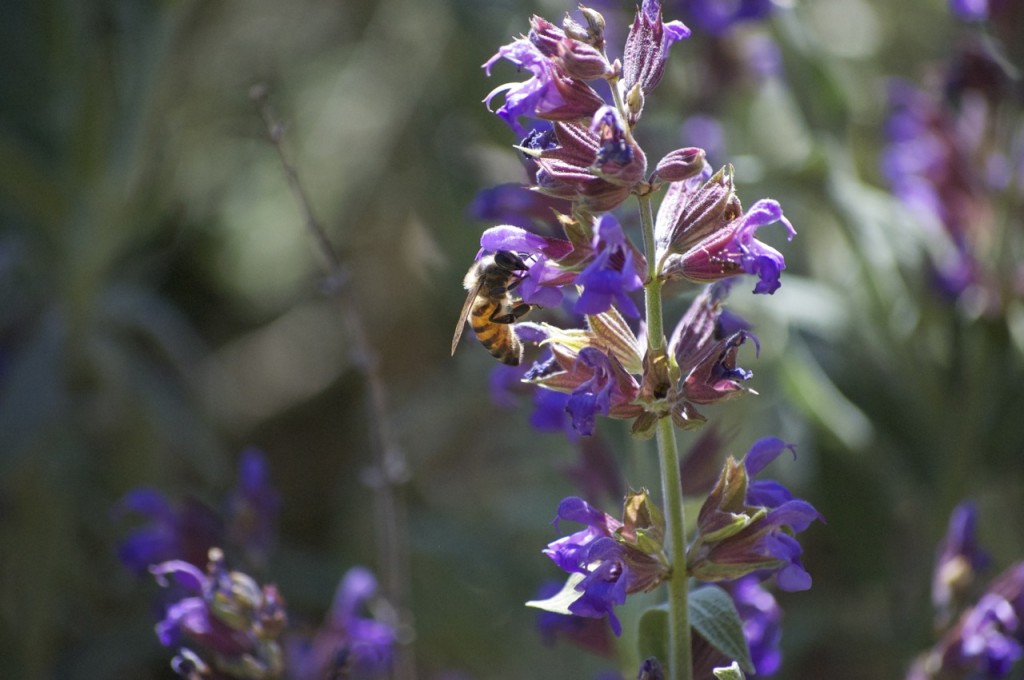The honey bees have come home to roost. Again.
This is the fifth time in the past few years that they’ve taken up residence here at Chez Penn-Romine.
Our lavender, sage and rosemary blossoms are quite a hit with them. I don’t know if our flowering herbs are the sole determining factor in their insistence on being our little roomies. Our backyard is a calm place, with no kids and no dogs. Just Tex, the rangy neighbor cat who has made it his office. His business is sleeping, and he works a dedicated 20-hour-a-day shift. (If only I could be paid for that!) He doesn’t interfere with the bees’ work, and they don’t interfere with his.
One of the bees flew in the front door of our house last week. It was late in the day, and I’m sure she was just looking for the most direct route home. Don’t we all after a hard day’s work? I noticed her because our tomcat was sitting very still on the doormat and leaning way-waaaay back. He was squinting at something and had turned his ears backward as far as he could make them go. I walked over to take a look and realized there was a honey bee hovering at eye level, just about a foot from Cosmo’s face. No doubt he’d aimed his ears backward so the levitating wonder wouldn’t fly into one of them.
When the weather is nice–which is most of the time here in Southern California–we leave the door open, with just the security gate locked, so the light and fresh air can come in. Sometimes wee visitors come in, too. Like Mademoiselle Bee.
I herded her out gently, guiding her with a magazine. She came back in, and I escorted her back out. We replayed this scenario a couple more times. Since she obviously wasn’t getting the message, I finally closed the door. The next day I found her clinging to the security gate, dead. Bees have some pretty amazing bee-sense, but it doesn’t seem to extend to flying around what they cannot go through. We humans often behave that way, too, so I can’t fault our little visitor for not figuring it out.
I feel for the bees. Colony collapse is a serious problem. That may not sound like a worry to some people, but an awful lot of our vegetables and fruits are pollinated by these little guys. I’d like to give you a more precise measure than “an awful lot,” but different agencies calculate the amount in different ways, most of them confusing. I’ll just say that almost every bite of produce we enjoy is available to us because of bees.
A handful of bees may not sound like much (except a world of pain if you take it literally!), but a hive contains in the vicinity of 30,000 bees. When we blast a colony with bug spray, we’re removing thousands of pollinators from the landscape. They’re having a pretty tough time anyway, what with agribusiness’s willy nilly large-scale use of chemicals. So on a smaller scale, we can help them out by being patient when they decide to move in with us and relocate them to a spot that is better for us all.
I called Backwards Beekeepers to come and remove them. These Los Angeles-based volunteers collect honeybees and their queens and move them to locations where they can do their bee thing without causing problems for anyone else.
This isn’t easy for me. After a childhood filled with bee stings on the soles of my feet because I ran around barefoot in our clover-covered yard, I can state definitively that I am not a bee fancier. But I have at least a rough understand of what’s at stake. And I know it’s better to go against my natural inclination (which involves a spray can and running shoes) and do what’s right to help them mind their own beeswax.



















A lovely piece about the importance — and precarious life of — bees. Love the sound of your neighbour’s cat … our’s is in the same line of work!